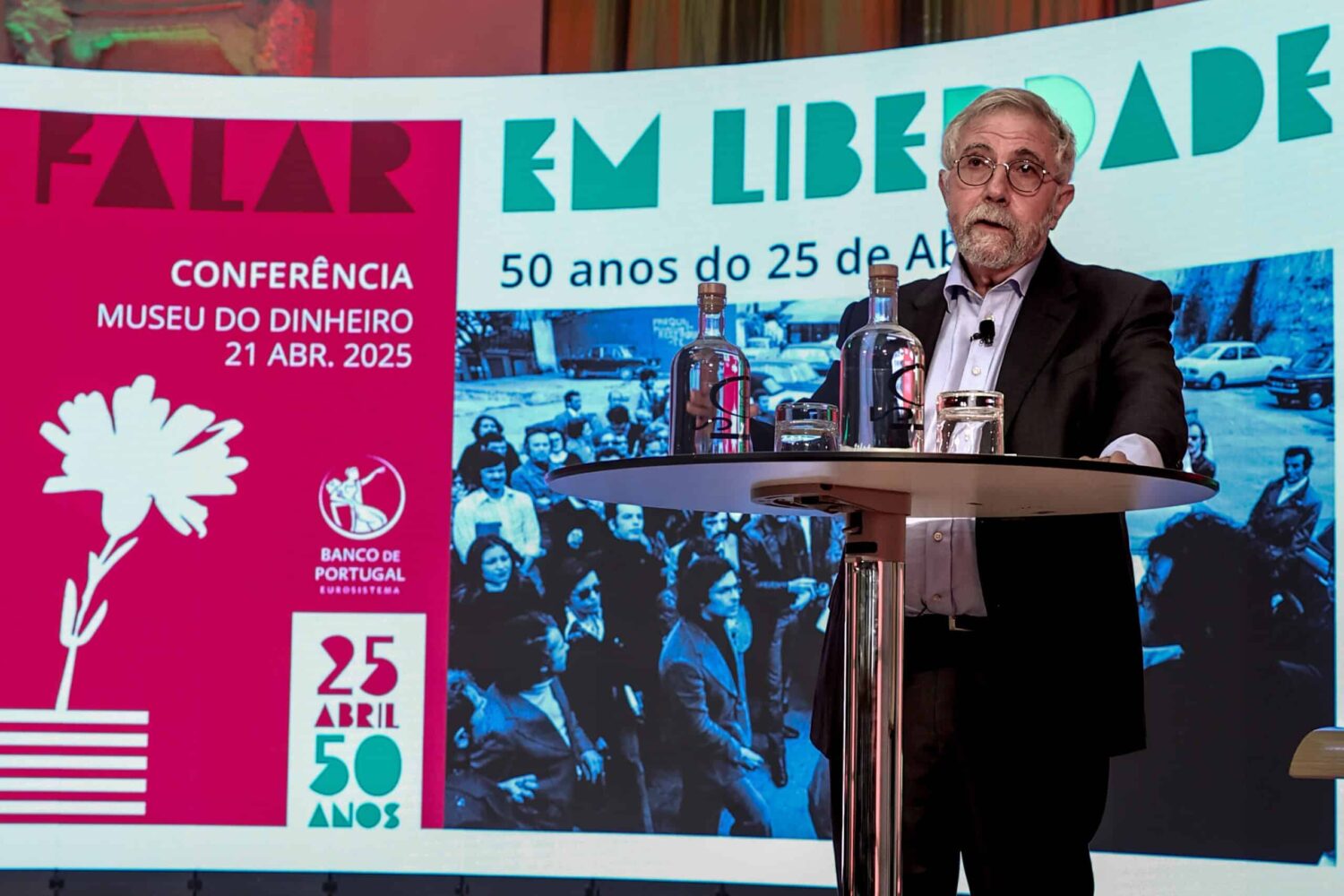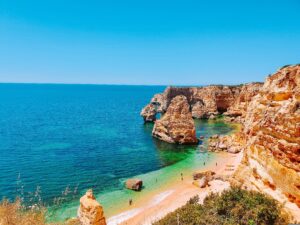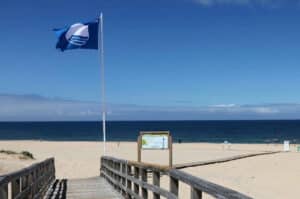As world financial markets remain in flux, the dangers posed by the Trump administration cannot be ignored
Two very different top men in their fields have expounded on crucial issues of the time while Portugal is being hobbled by the prospect of legislative elections in less than one month’s time.
When debate should really be focused on the wider world and what developing events could mean for this country, we are being constantly assailed by party-political bickering/grandstanding and even worse.
As such, many may have missed the interview given by Rádio Renascença to the president of the ‘Episcopal Conference’, D. José Ornelas. It went out before the passing of Pope Francis, and was hugely explosive (to the point that it seems barely to have been picked up by political leaders who must be wholly preoccupied with fighting their rarified corners).
But what D. Ornelas said, essentially, was: “We must all fight back!”
It was very much an example of those wise words, frequently attributed to Edmund Burke: “The only thing needed for evil to flourish is for good men to remain silent”.
As Portugal’s senior bishop, D. José Ornelas must be considered a good man – and he did not hold his tongue. He waded into the maelstrom created by the new Trump administration, comparing the new leader of the so-called free world to Adolf Hitler.
“‘When you hear the words ‘America First’, it is the same as ‘Deutschland über alles’. It is the same thing: everyone else takes a back seat and only has a place in the world after us. It is saying ‘we dictate the world’ (…)
“This is not an order,” Ornelas told his interviewers. “We are reaching the end of world order and of everyone’s capacity. And then what comes next is what is very dangerous. It is the question of saying: ‘I want Greenland; I want Canada’.” This cannot be! This is Lebensraum, Hitler’s living space, achieved with the enlargement of German territory in the Second World War (…) This has to be taken seriously!”
Assuring RR that he is not proposing a conflict with the United States, D. Ornelas stressed that it is “important that the mentality and culture of this world, and (its) people, stand up”.
Claiming to be “not at all calm” about what has been happening since Donald Trump took office in January, the bishop stressed that “if we want a new order, if we want hope, we have to fight for it”.
Reports of his interview refer to another juncture where he said: “In order for us to have hope, and to be the founders of hope, we need to be on our feet. There is no point in falling asleep. You cannot fall asleep right now!”
Seizing D. Ornelas’ words, university lecturer, former mayor and former PJ investigator Francisco Moita Flores wrote that after “three months in which there has not been a single day without the vomiting of rubbish, someone has said out loud” what politicians may only be saying “very quietly”: “An ignoramus, transformed by the size of his ego, in love with himself, unashamedly vulgar, has put an end to years and years of peace and stability.
“Many were scandalised when they saw him insult Zelensky in the Oval Office, aided by his pet monkey JD Vance. They were scandalised by his tariffs and, up until now, our people grumble, but they’re slow to punch back”, writes Moita Flores.
“This is a man who betrays alliances, who loves Putin, who wants to gobble up Greenland and Canada, like (Hitler) did with Czechoslovakia and Poland. (This man) who daily insults the wisdom and science produced by his universities – some of them the most prestigious on the planet; who meddles like a parasite in other people’s universities (writer’s note: this being a reference to the questionnaires recently sent out by US authorities to European universities), is the leader of the West? Is this the kind of person that ministers and consorts still pay their respects to? And don’t they blush with shame at such cowardice?”
Correio da Manhã, which published Moita Flores’ column, alongside Bishop Ornelas’ warnings, recalled that John Kelly, former White House chief-of-staff in Donald Trump’s first administration said in an interview last October that Mr Trump ‘admired Adolf Hitler’ and “certainly falls into the general definition of fascist”.
And this week, in Lisbon for a conference at the Bank of Portugal, Nobel prize winning economist (2008) Paul Krugman posed the question “would tourists come, would digital nomads come, would foreign investment materialise if Portugal was fascist?”
The answer lies in everything that has happened since Portugal became a democracy – and why we have such a healthy influx of visitors and investors. But the threat to that democracy is ‘always there’. President Marcelo has been warning in countless speeches over the years how democracy has to be ‘worked at’ or risks being lost. And former naval admiral Henrique Gouveia e Melo – the ‘hot favourite’ in the presidential race that will start taking centre stage once our looming legislative and then-to-come municipal elections have been sorted – has also been warning how democracy is not inevitable.
Two years ago, Gouveia e Melo gave a speech as part of a cycle of celebrations for the 50th anniversary of Portugal’s own democracy (celebrated tomorrow, on April 25), where he described a world “divided between autocracies and democracies”.
“If democracies fail to present convincing arguments about the importance of political freedoms or if citizens become disillusioned with the way they are governed, a new generation of autocrats will be very willing to step in and take the reins of power,” he said.
This was all during the days in which no one believed Donald Trump would return to the White House for a second term – and absolutely no one could imagine what has happened since he has.
Right now, the country is being bamboozled by homegrown political arguments, as if what happens in Portugal is somehow hugely relevant. It isn’t: what happens to Europe is much more important, and right now, the threat of tariffs is still very much on the table – and if Paul Krugman is to be believed, Portugal is slightly more exposed to what he calls “the madness” coming from his home country across the Atlantic than the average European country. Its saving grace is that it is fully aligned with Europe.
As for Krugman’s own feelings towards his nation, he told the conference: “Times are so terrible in the United States that I’m almost afraid to go back.”
COMMENT by Natasha Donn




















